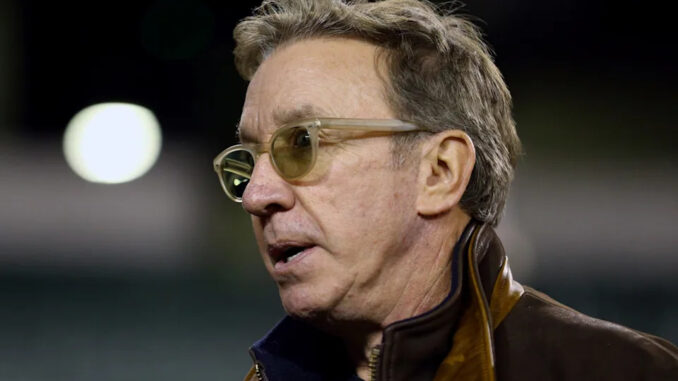
The human heart, when wounded, often constructs fortresses of bitterness, not to keep pain out, but to keep anger in, believing it a shield against future hurt. For decades, the public knew Tim Allen as the quintessential "Tool Man," a figure of boisterous humor and practical, albeit often misguided, wisdom. Beneath the surface of his comedic persona, however, lay a chasm of grief carved by the sudden, tragic loss of his father in a car accident when Allen was just eleven. The perpetrator, the driver responsible for that fatal collision, remained an unnamed specter, a focal point for a young boy’s immeasurable sorrow and the righteous anger of an adult carrying that burden. But as life, in its profound and often surprising wisdom, so often teaches, even the deepest wounds can begin to heal, sometimes in the most unexpected ways – as it did for Allen, through the profound echo of a eulogy.
The crash that claimed Gerald Dick, Tim Allen’s father, was not just an event; it was an amputation of a foundational limb of his childhood. The world, once ordered and safe, fractured into a kaleidoscope of trauma. For a young boy, the abrupt void left by a parent’s absence is often filled with a potent cocktail of confusion, sorrow, and, inevitably, a simmering resentment directed at the agent of that loss. The driver became the embodiment of injustice, a faceless antagonist etched into the very fabric of Allen’s memory. This was not a wound that faded with time; rather, it festered, a raw nerve that throbbed with every reminder of what was stolen. The anger, though perhaps unspoken, was an anchor, mooring him to that terrible moment, preventing him from truly moving on, even as his career soared and his life unfolded.
Years turned into decades, and the weight of that unresolved anger continued to press. Forgiveness, in such circumstances, often feels like a betrayal of the loved one lost, a concession to the one who caused the pain. It’s a complex emotional knot, one that few dare to untangle. Yet, the catalyst for Tim Allen’s breakthrough did not come from a grand gesture or a direct confrontation. Instead, it arrived subtly, profoundly, in the shared space of grief at a different funeral, during a eulogy for someone else entirely. The specific words of that eulogy remain private, but their impact on Allen was seismic. Perhaps it spoke of the inherent fragility of human life, the accidents of fate, the shared sorrow that binds humanity, or the liberating power of releasing one’s own heart from the shackles of perpetual grievance.
Whatever its exact phrasing, that eulogy peeled back layers of entrenched bitterness. It offered Allen a new lens through which to view the past, not to erase the pain or condone the action, but to reframe the perpetrator not as a cartoon villain, but as another human being, possibly carrying their own burden of guilt or remorse. It allowed him to glimpse the possibility that clinging to anger punished himself more than it did the driver. Forgiveness, in this context, was not a gift to the person who caused the harm; it was a profound act of self-liberation, a conscious choice to drop the heavy anchor of resentment that had held him captive for so long.
The journey to forgiveness is rarely a sudden, blinding flash of light; more often, it is a gradual dawn, a thawing of frozen emotional landscapes. For Tim Allen, that eulogy was the first significant ray of warmth. It didn't mean he forgot his father, nor did it erase the tragedy. What it did was free his spirit from the self-imposed prison of grievance, allowing him to reclaim a peace that had been elusive for over half a century. His story is a powerful illustration that forgiveness is not about excusing the inexcusable, but about understanding that holding onto anger often inflicts more pain on the bearer than on the intended target. It is a testament to the enduring capacity of the human heart to find compassion, even in the face of profound loss, and to choose the arduous path of letting go, ultimately for its own profound healing. Tim Allen, the "Tool Man" who fixed houses and made us laugh, ultimately found the most critical tool for himself: the wrench to loosen the grip of a lifelong grudge, forging forgiveness from the unlikely crucible of another’s eulogy.
